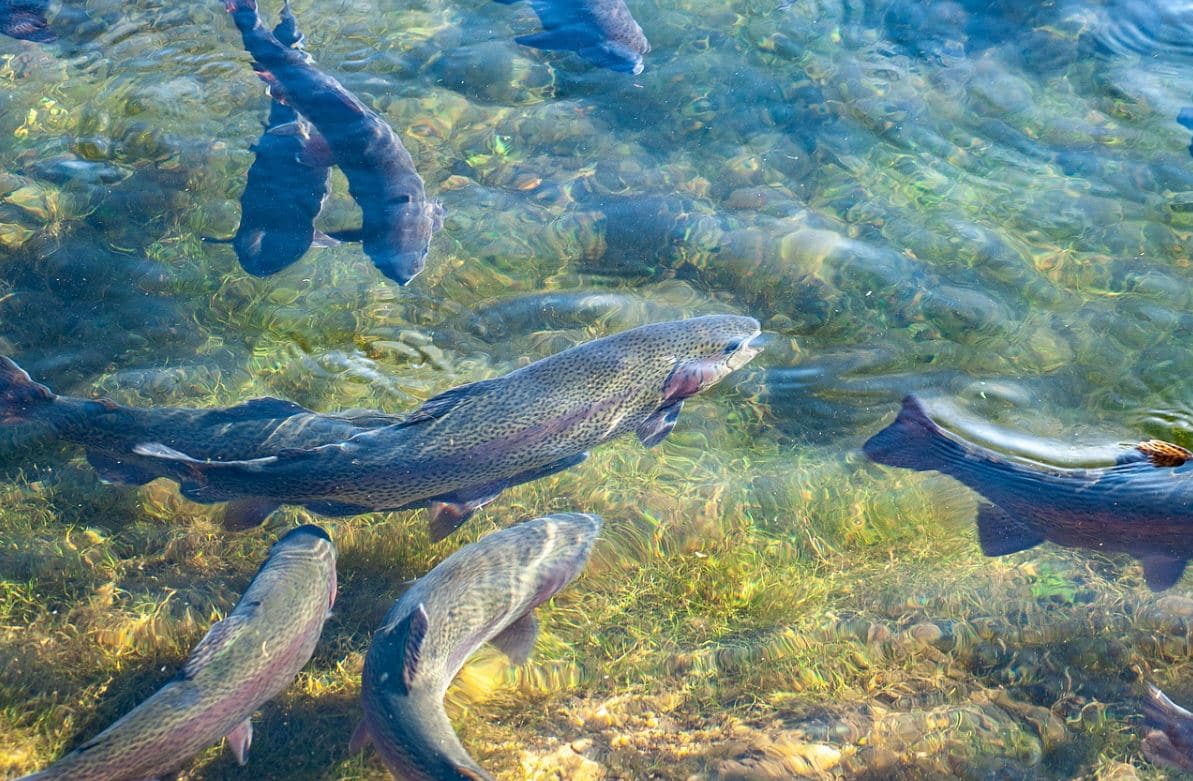Report Suggests Pandemic Underscored Importance of Sustainable Fisheries Management

Global demand for fish has reached an all-time high despite the economic and supply challenges posed by COVID-19.
This year, the world consumed enough fish for every man, woman, and child on the planet to have about 45 pounds each. At over 197 million tons total, this is the highest ever, according to the Food and Agriculture Organization of the United Nations.
Making this all the more remarkable, is that it occurred at a time when there was a 6.5% reduction in the world’s catch due to difficulty obtaining fishing supplies, restaurant closures, restrictions on global trade, and labor shortages due to COVID-19, according to FAO.
But if fish are going to continue to play a central role in global food and nutrition security, it is critical that governments support sustainable aquaculture development and engage in effective fisheries management.
In a new report, the State of World Fisheries and Aquaculture, the UN agency talks about the gains that were made in making commercial fishing more sustainable prior to the pandemic, and the stress the industry has been under since then.
The report suggests that total fish production will increase, worldwide, to about 204 tons annually by 2030, up 15% from 2018.
That growth is around half the increase recorded in the previous decade, and translates into an annual per capita fish food consumption forecast to reach 21.5 kilograms by 2030.
Qu Dongyu, director-general of the Food and Agriculture Organization, said in a blog post announcing the report’s release that there is growing evidence that while effective fisheries management results in robust rebuilding of fish stocks, failure to implement these measures threatens their contributions to food security and livelihoods.
According to the report, the underlying reasons for sustainability failures are complex and need tailored solutions. But Dongyu emphasized that sustainable fishing must play a more central role in food security and nutrition strategies at all levels.
As it stands now, sustainability trends for many major species are improving.
Catches of all kinds of tuna reached their highest level, about 7.9 million tons in 2018, the report said, and two thirds of these stocks are now fished at biologically sustainable levels.
“The improvement, the fruit of contributions from many stakeholders, attest to the importance of active management to reach and maintain biological sustainability, and serves to underscore how urgently we must replicate such approaches in fisheries and regions where management systems are in poor shape,” said Manuel Barange, director of the FAO Fisheries and Aquaculture Department.
“Not surprisingly, we notice that sustainability is particularly difficult in places where hunger, poverty and conflict exist, but there is no alternative to sustainable solutions,” Barange added.
The FAO report is based on information gathered before the onset of the coronavirus crisis but it is already helping FAO the organization respond with technical solutions and targeted interventions for fisheries and agriculture.
Global fishing activity may have declined by around 6.5% as a result of restrictions and labor shortages due to the coronavirus pandemic, according to an addendum to the report.
The disruption of international transport has impacted aquaculture production for export, while greatly reduced tourism and restaurant closures have dramatically impacted distribution channels for many fish types, although retail sales have remained stable or increased for frozen, canned, marinated and smoked fish with a longer shelf life.
In parts of the Mediterranean and the Black Sea, more than 90% of small-scale fishers have been forced to stop due to an inability to sell their catches, often exacerbated by falling prices.
Despite the past few month’s disruption, aquaculture’s expansion will continue, although at a slower rate, and farmed fish will contribute to a growing share of consumption and trade over the next decade, the report said.
The report notes that the significant dietary values of fish has galvanized the importance of aquaculture development.
This in turn will lead to strategies to help it intensify production sustainably using innovative techniques in the areas of feeds, genetic selection, biosecurity and business developments, the report said.























